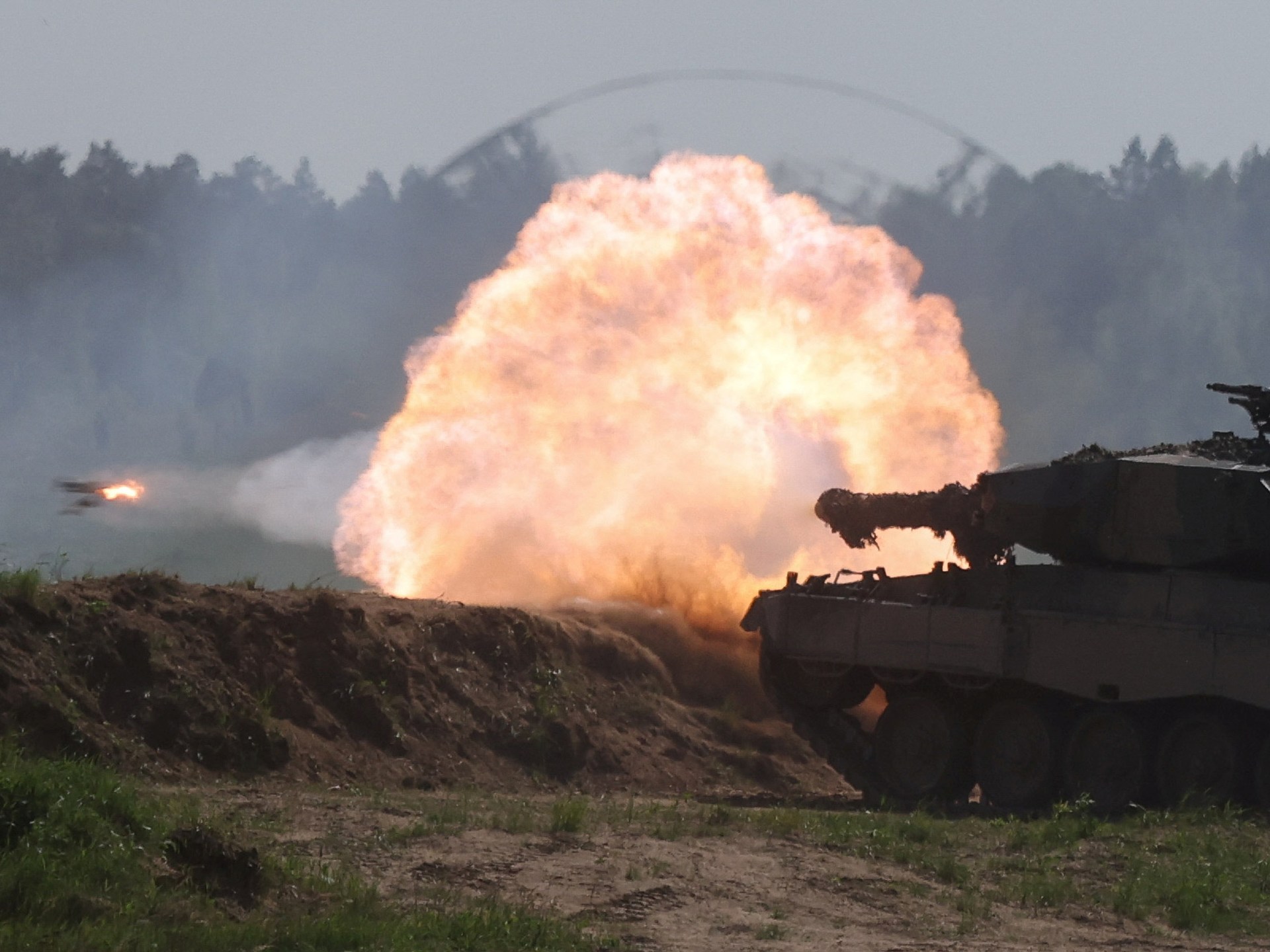Ukraine said that it expects the decisive phase of the war with Russia to be within a few months, while Russia has intensified its attacks in the east and south, and said it has made new progress in the Donbass region.
The Ukrainian intelligence service said - in a statement on Monday - that the east of the country is witnessing difficult and decisive battles, and that Russia is regrouping, and confirmed that the Russian attacks in the south aim to protect the Crimea peninsula.
She added that the main activity of the Russian army is in the axes of Donetsk and Luhansk, which are two regions that make up the Donbass region, and parts of them are controlled by Russian forces and their loyal separatists.
The Ukrainian intelligence stated that the war, which has been going on since February 24, 2022, will enter a decisive phase in the spring and early next summer.
A week ago, Ukrainian intelligence said that Russian President Vladimir Putin, during his meeting with the new commander of Russian forces in Ukraine, General Valery Gerasimov, asked to take control of Donbass before next spring.
The course of battles
In the field, the Ukrainian Reconnaissance Operations Command in the fronts of Bakhmut and Solidar in the Donetsk region said that the Ukrainian forces fought what they called sensitive battles in the town of "Obtineh" southeast of Bakhmut, and broadcast pictures showing the targeting of Russian forces on those fronts.
On the other hand, the Russian Ministry of Defense announced that its forces had taken control of a new town in the axis of the city of Solidar, and the pro-Russian forces in Donetsk announced that the Russian army had taken control of the towns of Dvorichi and Krasnopolivka, north of Solidar, on the Bakhmut axis.
The pro-Russian Regional Defense Center in Donetsk said that Russian forces continue to advance in the Bakhmut-Solidar axis, and talked about Ukrainian shelling that targeted residential areas.
Amid the escalating battles in the Bakhmut axis, the commander of the pro-Russian forces in the Donetsk region, Denis Pushlin, appeared in the city of Solidar, which Moscow confirmed that its forces had taken control of a week ago, which Kyiv has so far denied.
In statements to Russian television Monday after his visit to Solidar, Pushlin said that the small town, which includes salt mines and was inhabited by about 10,000 people before the war, has almost no standing buildings left.
Battles are also raging around the city of Bakhmut, and Pushlin talked about the progress of the Russian forces in this axis, indicating that units of the pro-Russian Wagner Group are now controlling the neighboring strategic heights.
In simultaneous developments, the Ukrainian army said that it had regained the positions it had lost in the past few days in Zaporizhia province (southeast), and added that Russian forces had intensified their attacks in Zaporizhia and Kherson, which is also located in the south.
Constant battle
In the context, Ukrainian President Volodymyr Zelensky said in his daily speech on Monday evening that Russian forces are bombing the Ukrainian army's positions on the front lines around the clock.
Zelensky added that the battle in the Donbass and in the south continues, and said that Russia is mobilizing its forces, adding that it knows how to respond to that.
And the Ukrainian president said - during his meeting with students of Shevchenko University, accompanied by former British Prime Minister Boris Johnson - that there is an ongoing mobilization in the country to support combat capabilities on various fronts.
Germany has so far refrained from sending Leopard 2 tanks to Ukraine (Reuters)
tanks and aid
On the other hand, Poland announced Monday that it is ready to send German-made Leopard tanks to Ukraine without Berlin's approval.
Polish Prime Minister Mateusz Morawiecki said that his country would seek Germany's approval to hand over the tanks, but indicated that it might have to send them as part of a coalition of countries.
The government of German Chancellor Olaf Scholz has so far refrained from sending Leopard 2 tanks to Ukraine, but has indicated that Poland can do so.
Simultaneously, a German army convoy carrying the first two batches of the three "Patriot" missiles that Germany promised to provide to Poland departed from the German Rostock region on the Baltic Sea. The missiles will be deployed in the vicinity of the city of "Zamosk" in southeastern Poland, close to the border with Ukraine.
In Brussels, European Union foreign policy chief Josep Borrell said on Monday that a political agreement had been reached to provide a seventh package of military support to Ukraine.
Borrell added, after a meeting of European Union foreign ministers that also discussed the use of confiscated Russian assets for the reconstruction of Ukraine, that the Union will continue to support Kyiv because it must win the war, as he put it.
The British newspaper "Financial Times" reported that the President of the European Council, Charles Michel, urged the leaders of the member states to move forward with talks on using up to $300 billion of the frozen assets of the Russian Central Bank for the reconstruction of Ukraine.
For her part, Belgian Foreign Minister Hajja Habib said in an interview with Al-Jazeera that her country had frozen huge Russian assets, and added that the use of these assets requires a legal framework, which is not available yet.

